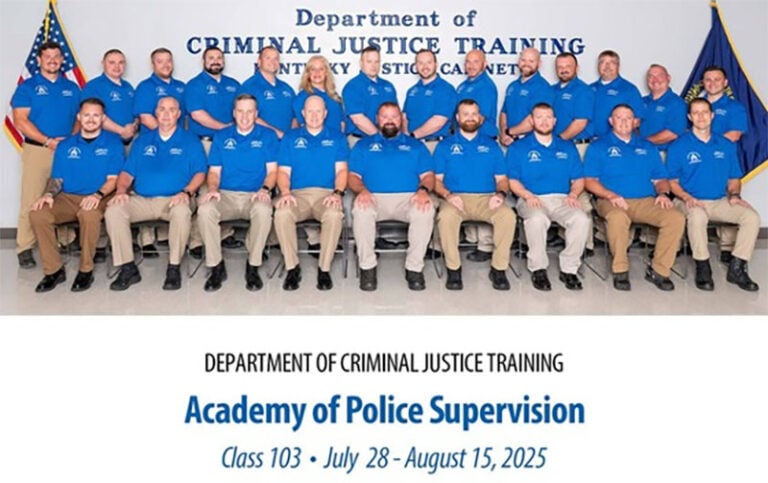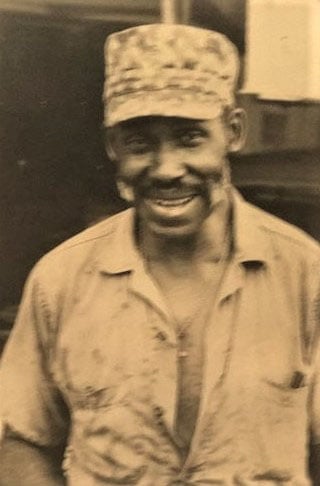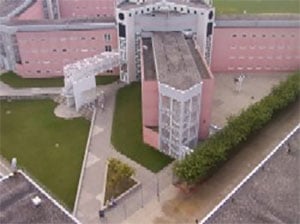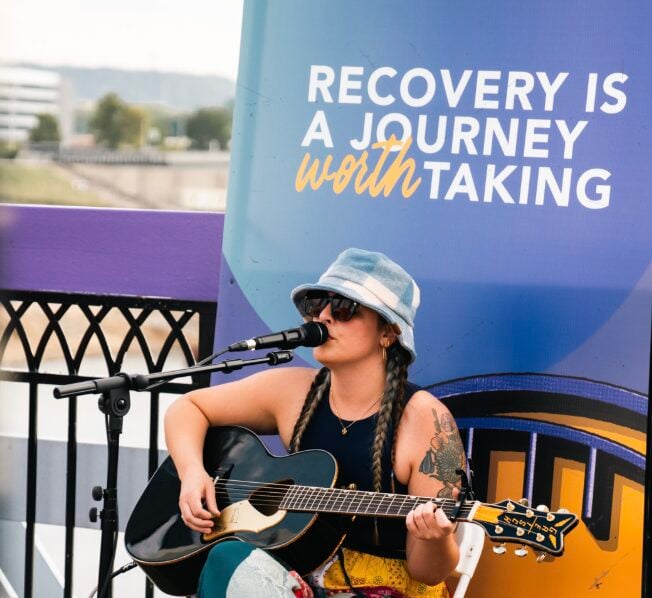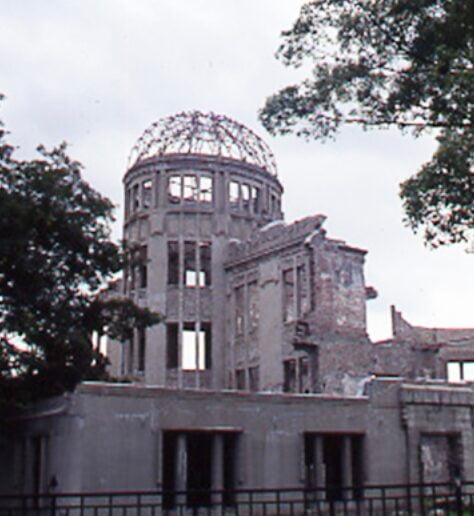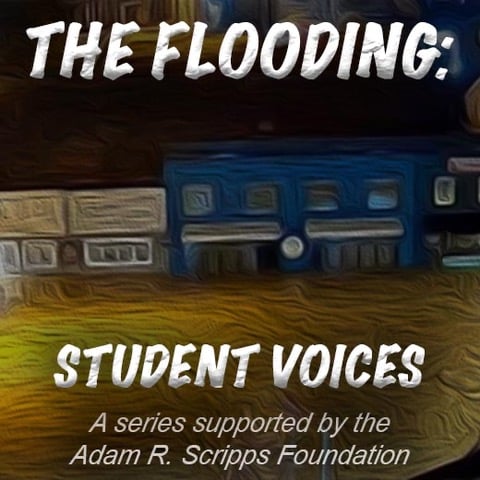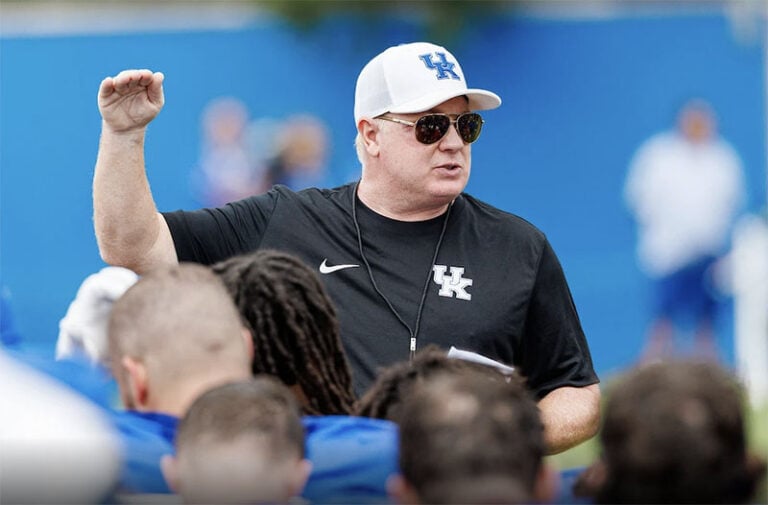In this occasional series, published in partnership with NKyTribune and Kentucky Student Voice Team’s The New Edu, Eastern Kentucky students reflect on devastating 2020 flooding that impacted the region, documenting what they remember. In this as-told-to piece, student Stephen Bigham recalls spending the summer before his freshman year helping his community clean up alongside his teammates. This series is made possible by a grant from the Adam R. Scripps Foundation.
By Stephen Bingham
Kentucky Student Voice Team
I live on a mountain. It had rained throughout the night for about eight hours. So, my papaw and I got in the car, and were trying to get out of the holler to get to the high school, because it was time for the bus to leave for camp. We got down to the bridge, and it was fully submerged in water: there’s a truck that’s flooded up past its window, stuck on the middle of the bridge with nobody in it.
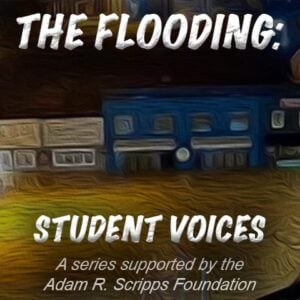
I think, well, there’s probably no football today. It was the day before we were supposed to have an overnight football camp; we were going to travel to Paintsville. All I was worried about was making sure I got there on time, because I was a freshman, and I didn’t want to leave a bad impression on the coach.
We had no internet at the house, so we didn’t know what was going on. We had power, but there was no telephone service. We just had to go back to the house and wait.
Time around here stopped for everybody.
When the telephone service got back, the first thing I did was text my best friends, who both had flood trouble. I called a friend who lives on a mountain like I do, to see if he’d been able to contact his girlfriend at the time, who lived in an area that had been affected by the flood.
I said, hey, man, is everybody doing okay? Do y’all have water, power do you need somewhere to go? And he’s like, yeah, everything’s fine; I’ve got a million texts, and ain’t nobody even mentioned my birthday.
Nobody had told him happy birthday. They were all worried about people dying.
Later that night, Coach Matthews, our football coach, posted on Facebook that practice was canceled and that anybody who can needs to get out and help – it’s not mandatory, but it’s suggested to help the brothers on the team that lost their homes.
That next day, my two friends, my friend’s older brother, who could drive, and I went out when the water had lowered off the bridge in the holler. We made a checklist of people we knew that needed help. They didn’t ask for help. They didn’t have to.
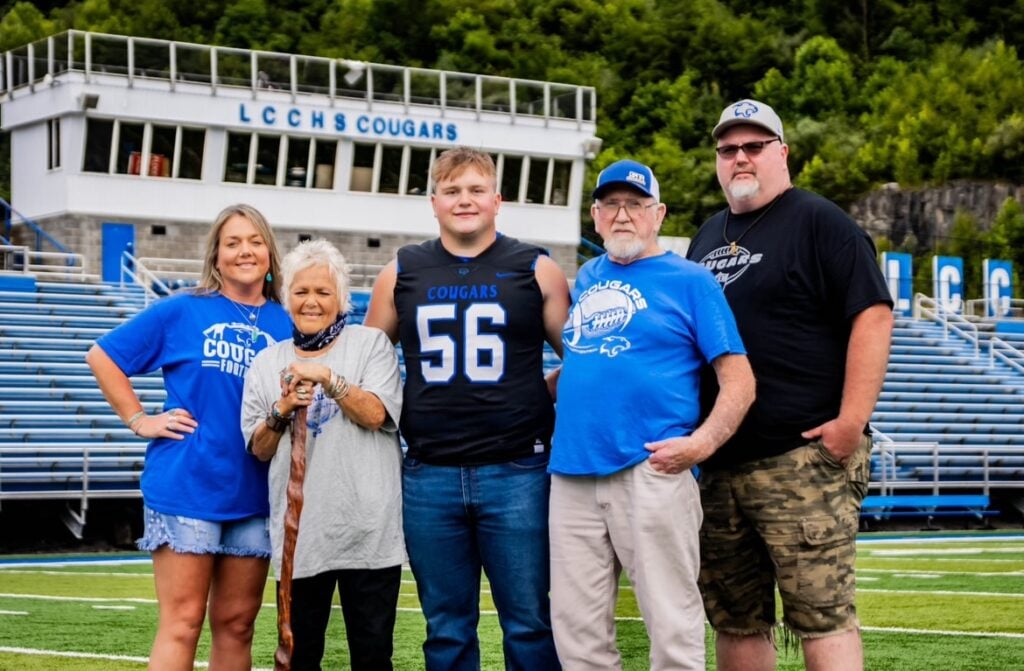
We went straight to a girl’s house that we went to school with our entire lives – birthday parties, friends, her dad had been our middle school football coach. We pulled out furniture and clothes and pictures, all these things that have so much sentimental value that you don’t realize ‘till you lose them. Like a couch that your father or your mom bought when you were first born, that you had grown up on your entire life.
You pull it out, and it’s flooded and you can’t even lay on it; it’s covered in mud. Or a bed frame that someone picked out when they were a little girl – you’re cleaning it out, and you see this little princess bed frame, and you know that some little girl, when they were a kid, loved that, and their parents spent hundreds of dollars just so they could get it for them.
We’d been playing football together since third grade. We’d all bonded through football. So, we’d have football clothes on all the time. We were working every day in these Cougar shirts, and sometimes people would be like, you play football? Yeah, but the football team wasn’t what was out there. It was teenage boys who had been brought together by this catastrophe, who decided to work and help their community.
And it just so happened that there was one binding force between all of them that they played on the football team.
We started going door to door, asking people if they needed help moving stuff. We worked alongside Amish folks who had come to help, and later, Red Cross responders. Right around that time – I call him a local legend but he’s about got world famous now – Tyler Childers was cleaning alongside us. I never knew until the day after, when everybody on Facebook was talking about it – just thought it was another hard-working feller who’s here to help his community. When we went to the high school to help clean up there, we’d missed another local legend, Chris Stapleton, who was at our high school cleaning and handing out supplies. It meant so much to me to even hear that they were there, and see photos that they were in our little town, in a school that I hadn’t even set foot in yet.
The school that I’d always gone to was on the riverbank. It flooded, so we got it cleaned out, then went to the next school, then the next school, the opposing Fleming Neon Middle School. We helped them clean their school out, because they were all family. On the football team, when you get to high school, there’s no more rivalries.
I don’t have a brother and I don’t have a father. The football team has always been an opportunity for me to be a leader and maybe even be a big brother or father figure to some of these kids who went through some of the things I went through, but it also gave the opportunity to learn and to have people that are like a brother or like a father.
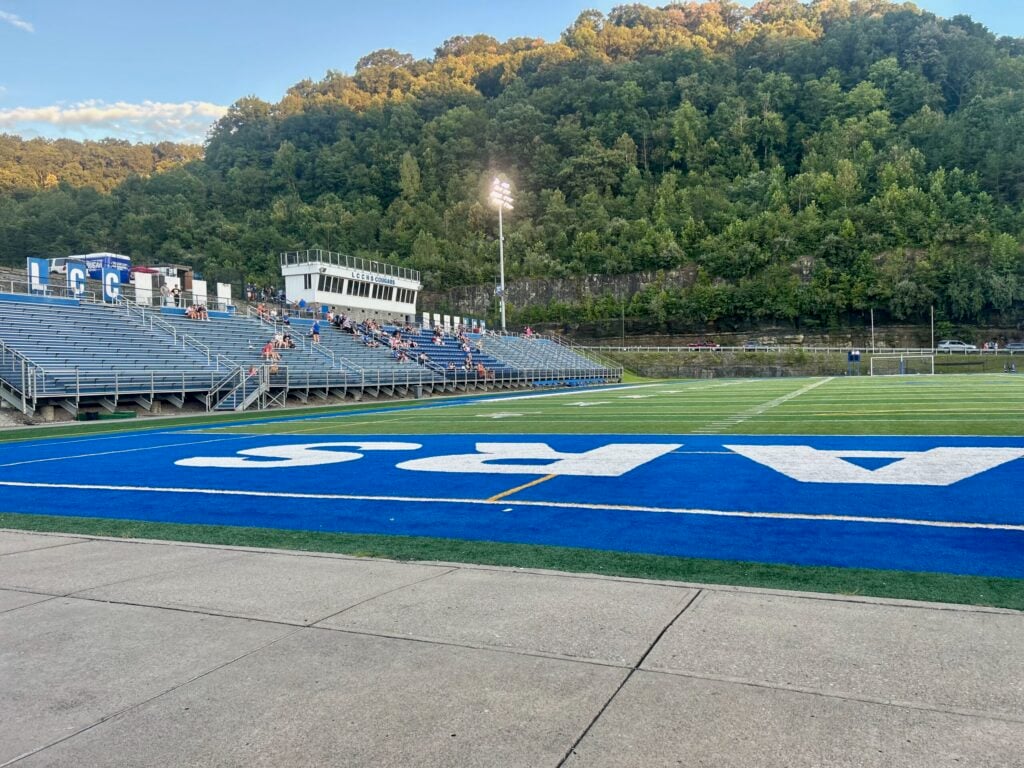
That football season, we had a great quarterback, Jonah Little. His summer workouts didn’t come from running sprints or climbing hills or lifting weights; it was cleaning basements, moving furniture and helping tear down houses that had flooded. Some of our opponents even helped out: David Crockett out of Jonesborough, Tennessee, a team we have faced many times, decided to help out by donating supplies and gift cards for the affected. In 2024, our head coach and team were recognized with an award for character in adversity.
I had lost plenty in my life, but I had never been on the side that everything was fine for me but somebody else had struggled. My family was always the strugglers. But we were home and we were safe, and we realized that now that we are the ones in the higher ground, that it’s time to balance out the playing field and help everybody else. When you’re a 14-year-old kid and you see your whole community getting knocked down, you’re like, well, how can I help them get back up?
I would tell myself as a young man back then: allow yourself to grow and allow your community to grow alongside you. Try to not just look for problems that need solved, but look for problem solvers, people that can help you alongside the community to fix things that you can’t do yourself. You may think that you are able to fix every problem alone that your community is facing, but the truth of the matter is you need help.
I hope I never forget the level of work it took to bring this community back to life. Along with the sacrifices my team made, we overcame countless hardships and worked together, forming more of a brotherhood than a football team. It’s not about where you’re from or what you went through; it’s about how you handled what you went through and how you build upon where you’re from.
Stephen Bingham is a 12th grade student at Letcher County Central High School. Through sports, family, friends, and the love of his small town, he has worked to turn his life into a story that he hopes can help others as well.









